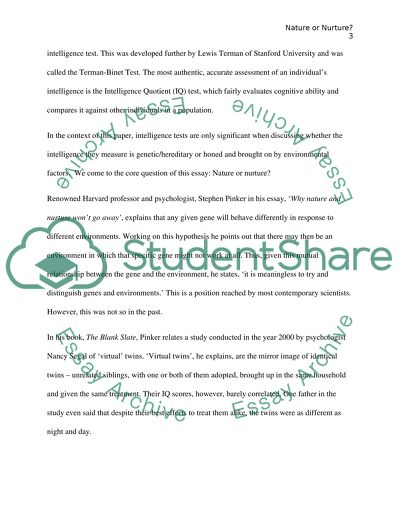Cite this document
(“Intelligence Nature versus Nurture Debate Essay”, n.d.)
Retrieved from https://studentshare.org/psychology/1438443-intelligence-nature-versus-nurture-debate
Retrieved from https://studentshare.org/psychology/1438443-intelligence-nature-versus-nurture-debate
(Intelligence Nature Versus Nurture Debate Essay)
https://studentshare.org/psychology/1438443-intelligence-nature-versus-nurture-debate.
https://studentshare.org/psychology/1438443-intelligence-nature-versus-nurture-debate.
“Intelligence Nature Versus Nurture Debate Essay”, n.d. https://studentshare.org/psychology/1438443-intelligence-nature-versus-nurture-debate.


